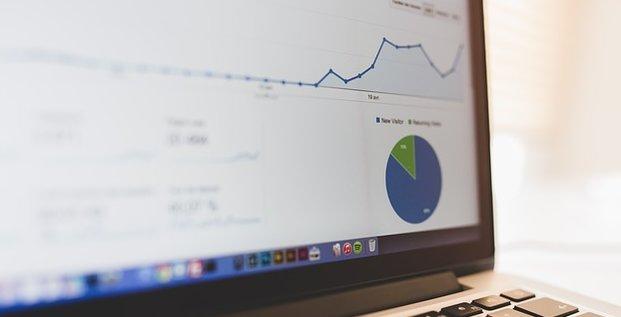Will the revolution announced for the online advertising sector be born?The year 2021 promises to be a pivotal.The premeditated death of the cookie - these small text files recorded in browsers, allowing to trace Internet users on Internett -promises to rebatches the cards for the advertising industry worldwide.This fundamental movement is coupled with new requirements in France, imposed by the CNIL (National Commission for Data Protection) from this Thursday, April 1.
Read also: targeted advertising: new solutions under study in the face of the announced death of cookie
Need to obtain a "real" consent
Last October, the gendarme of personal data published new recommendations for companies to strengthen the consent of Internet users vis-à-vis cookies and other tracers.Since the entry into force in the European Union in May 2018 of the General Regulations on the Protection of Personal Data (GDPR), advertisers must collect "free, explicit and enlightened" consent of Internet users to be able to deposit cookies in their navigators.But in fact, the CNIL noted that consent was often forced in order to be able to continue its browsing on the Internet.
This is why the French gendarme now claims that the simple pursuit of navigation on a website should no longer be considered as a consent but as a refusal of the tracers.Another victory for Internet users: refusing the tracers must become as easy as accepting them, according to the recommendation.
Read also: Cookies: the CNIL tightens (a little) the screw to give a real choice to Internet users

"The deadline posed by the CNIL was taken very seriously by advertisers, publishers and advertising agents, estimates Guillaume Tollet, executive director within Fifty-Five, marketing consulting company specializing in data.
While companies had a period of six months to comply, pop -up windows have flowered in recent days on web pages with a new mention: "Continue without accepting [cookies]" - and this,Without having to read illegible conditions and long parameters like the arm.
Because by offering a real choice to Internet users, advertisers are exposed to greater refusals."When the consent collection platforms are optimized, it is estimated that advertisers could have an average consent rate between 65 to 70% - or a loss of cookie collection from 30 to 35%, figure the expert. But to obtainSuch performances, "a work of pedagogy and transparency will have to be carried out by the publishers to explain the interest of targeted advertising for them."
Read also: Apple: this problem of competition ignored by the antitrust
Towards less efficient cookies ...
For the Adtech sector -Advertising Tech or advertising startups -, this will result in mechanically by a drop in the representativeness of their samples and therefore, less precise targeting.An earthquake for industry?"This is more of a transition," judges Guillaume Tollet.Beyond the new CNIL recommendations, heavy goods vehicles in the sector gradually suppress third-party cookies.Apple deleted them by default from its Safari browser from 2017, followed by Mozilla on Firefox in 2019. The giant Google, which dominates the world advertising market, announced that it wanted to eliminate third -party cookies by 2022 on its engineChrome research.
Interest in these giants: to treat their brand images.While debates on online privacy protection are increasingly lively, this allows tech mastodons to position themselves as defenders of online privacy.
Consequence: with or without cookie, Internet users will continue to be tracked down on the internet.Google is also preparing the field since August 2019, with the launch of its initiative "Privacy Sandbox"."Blocking cookies without alternative to bring relevant advertising significantly reduces the first source of financing of publishers, which jeopardizes the future of a flourishing web", justified the firm of Mountain View in a blog note.
But new ways of tracking Internet users
This is why the American group is working on an alternative system, called "Federated Learning of Cohorts" (FLOC).Completed individual advertising targeting, Google now wants to create audience segments - the famous Floc - to classify people according to their centers of interest, depending on their browsing on the web.This can be for example "urban groups loving sport".These groups, from several hundred or even thousands of people, would be wide enough for it to be impossible to reveal the identity of the targeted user ... but precise enough to allow advertisers to reach their target.
If this system is currently being developed at Google to become a proprietary solution, criticisms are already emerging.The "Marketers for an Open Web" coalition (in French, marketing professionals for an open web), which brings together media publishers and technological companies located in London, is opposed to this new system.She fears that he no longer traps companies in the closed ecosystem of Google, which sells advertising spaces but also services as an intermediary between sites and advertisers.The coalition also filed a complaint with the British competition authority, which launched an antitrust survey against Google in January.
Another grievance, which is ethical: such a system of cohorts could lead to an arbitrary, even biased classification of Internet users.
6 minutes
To share :
